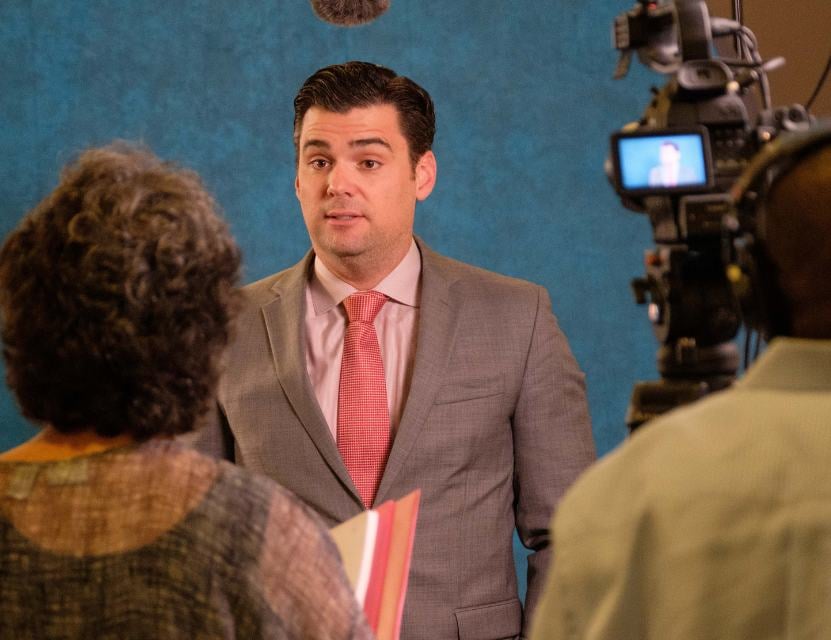Building the Energy Workforce of the Future is one of the most crucial tasks of our time. It will take a diverse, equitable, and inclusive workforce to deliver the innovations and hard work necessary to achieve an era of net zero.
That includes changing how the energy sector hires. And sometimes, making that change requires a fight. Rick Marriner knows this well. Now CEO at Reliance Industries Limited (RIL) USA and a member of the Women & Allies in Energy team for the upcoming TCS New York City Marathon, he shares a story of what happened several years ago at a different company.
He told HR that he needed to hire for a junior position on his oil trading team. “I got eight resumes, clearly all young men and probably white,” he recalls.
“I sent a note back saying, ‘I don’t think this is a representative sample. Please fix your pipeline, and send me a set of resumes that look like the population.’”
Having traveled to universities for recruiting trips, Rick knew that women and minorities showed interest and had the skills. Still, leaders in HR and the business pushed back, insisting that they knew better and that he should not challenge them.
“So, I threw a little fit. I told them I would not hire from the list they provided. I wouldn’t back down, and I got a bunch of allies to stand with me.”
Eventually, HR gave in and sent him a new, diverse set of resumes, with identifying details removed so he would not know their races or genders. Then, he selected three finalists who came in for interviews, he found that they included a Black woman, a Latino man, and a white man. The woman proved most qualified, got the job, and has since become a leader at the company.
“There’s a fine line between ignorance and negligence,” says Rick, who once spoke at the HERWorld conference about the shifting workforce. “Once you realize that your industry and community of decision makers doesn’t reflect society, you have a decision to make: Are we representative of the folks we serve?”
In tackling this problem, ALLY Energy “has been a big help,” Rick says.
Hoping to one day be put out of business
Just like so many other leaders in traditional forms of energy (oil and gas), Rick supports the transition to an era of clean, green energy -- and is a fan of the marathon team motto, “Racing toward net zero.”
Making sure oil is available and affordable to meet energy needs along the way is “part and parcel” of getting there, he says. “We could go to net zero tomorrow, but we would crash our economy. People who need gasoline, diesel, jet fuel, and all the other transportation fuels would be trapped. We would be back in the Stone Age because energy transition solutions are not at scale yet.” Global oil demand is estimated at more than 100 million barrels a day and is expected to reach nearly 106 million by 2028.
The father of five, Rick wants the next generation to be able to “afford to drive to college so they can study topics that will eventually put conventional refiners out of business.” That requires teams like his to do their jobs “efficiently, safely, responsibly and ethically.”
Reliance Industries Limited -- an Indian conglomerate that describes itself as “an integrated player across energy, materials, retail, entertainment, and digital services” -- has set its own net zero goal for 2035. It is also committed to become a leading new energy and new materials company and is one of many companies in the oil and gas industry that are investing in climate tech.
Rick is particularly excited about a discovery from Rice University, which the school describes as a device that “makes hydrogen from sunlight with record efficiency.”
Pushing hard, while avoiding dangers
When ALLY Energy CEO Katie Mehnert invited Rick to join the marathon team, he jumped at the chance. “I don’t run away from much,” he says, noting his prior military service. “I love running toward things, and having a goal.” He has previously taken part in Ironman Triathlon competitions, but the pandemic led him to stop.
It’s crucial to push through hard times in training, and “embrace the suck,” he says. But he is also serving on the team “as an advocate of rest. We’re high performers, and can run dangerous risks if we push too hard.” So he happily shares with fellow members of the team when he takes a day off or doesn't quite meet his goals.
It’s the same with the race to net zero, he says. People can “run themselves into the ground” if they don’t take time to rest and build up stamina for the long journey. Although he expects the world to reach the net-zero marathon’s finish line, he knows it’s a multi-generational effort. “If we’re young, we might see it,” he says. “But most of us are Moses talking about the promised land. So I doubt I’ll see it, but I don’t want to have stopped it. I want to help get us there.”



.jpg)

